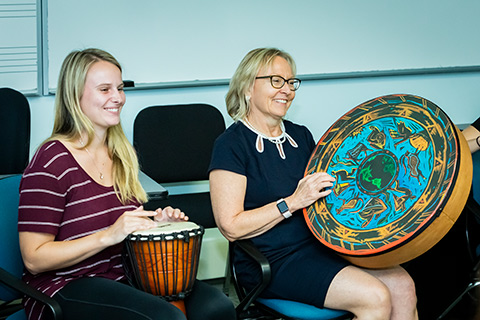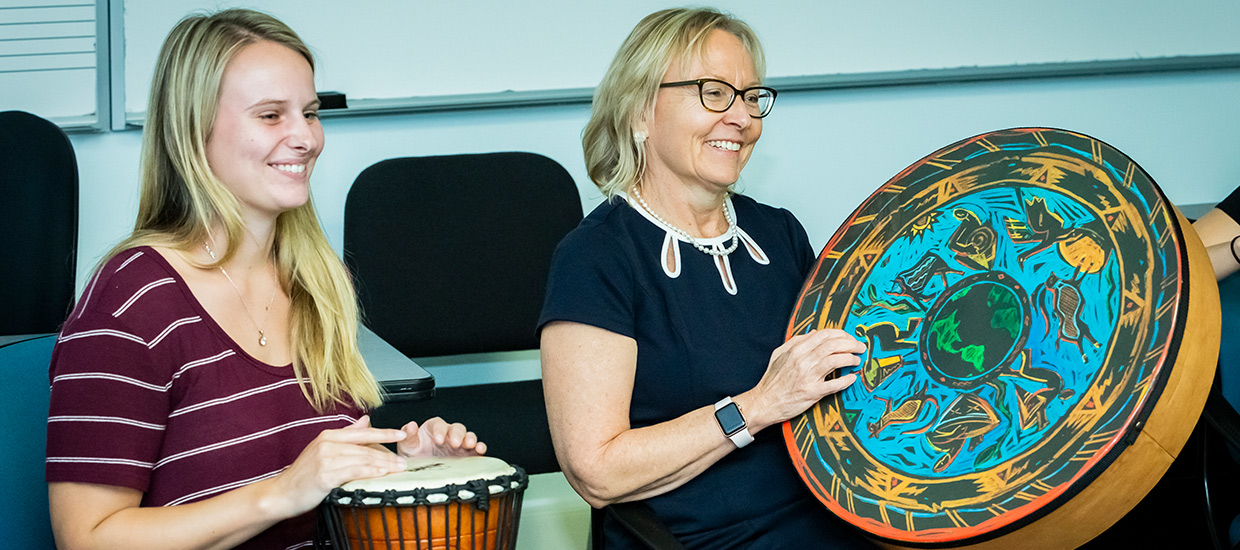The curriculum is built upon the clinical and research paradigm known as Neurologic Music Therapy (NMT). This model utilizes scientific evidence regarding the influence of music on the human brain and behavior function to treat neurological, developmental, and medical needs. The NMT approach is becoming increasingly recognized and accepted by the medical community, which helps increase employment for our graduates.
Masters students work closely with music therapy faculty for the duration of this rigorous program, thus they gain experience in all aspects of music therapy clinical practice, education, and research. The music therapy faculty are experienced researchers and distinguished educators who are known internationally for their research and service to the profession.
The Master of Music degree in Music Therapy is designed to help students achieve the following three goals:
- To acquire specialized musicianship as needed for advanced performance and for clinical practice. Within the diverse and comprehensive Frost School of Music, students have the opportunity to study with faculty who perform and compose regularly in local, national, and international venues. Consequently, the musical preparation of students here is unparalleled.
- To achieve advanced clinical competencies by examining the scientific evidence that supports the use of music in a therapeutic context. Through this examination, students will gain an in-depth understanding of human behavior and further refine their clinical interaction skills. Students will then translate this knowledge into therapeutic interventions which are then applied to clinical populations. Clinical work and research can be conducted at multiple hospitals and agencies in the greater Miami area, including the world-famous Miller School of Medicine.
- To develop independent research skills. Students have the opportunity to exercise their critical thinking skills and increase their knowledge of research topics, methodology, and analysis. Students who pursue the thesis track will demonstrate the ability to design and conduct an independent research project. Students who pursue the clinical track will apply research findings as they develop a clinically focused project within a specific clinical setting.





